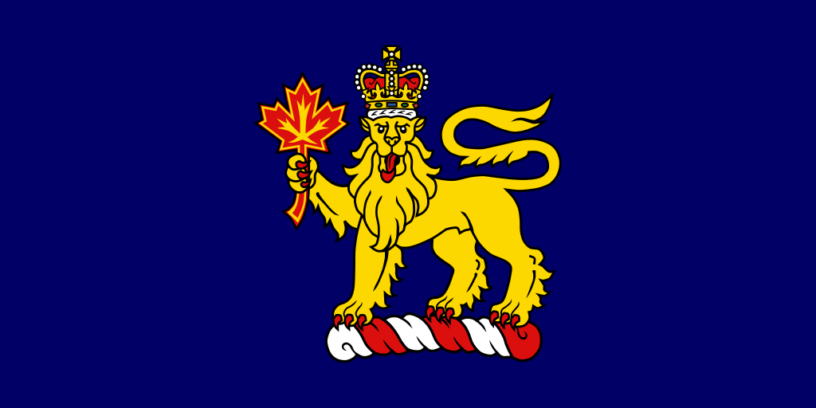Editor’s Note: Point Vs. Counterpoint is a feature meant to stimulate discussion on thought-provoking topics. The views and opinions expressed here do not necessarily reflect those of the authors, The Iron Warrior, or the Engineering Society.
The Counterpoint to this Point: Monarchy in Canada Must End
“Peace, order and good government”. There is no phrase more emblematic of Canadian political convention. It means that we as a country value stability and incrementalism. We are not flashy, but we are level and rooted in our responsibility. These norms are made office and flesh by our Governor General. The Governor General guarantees our country, checks our leaders and stabilizes our place in time and history. Today, I am here to defend the Governor General’s essential place in our democracy.
A brief refresher about the role of Governor General; they are the representative of the Crown in Canada. The Crown, held by the Queen of Canada, Elizabeth, is the ultimate authority in the land. The Governor General represents the head of state: not the personification of the government, but the personification of Canada itself. The Governor General is the country made flesh. So, when the Governor General signs every bill into law, the Prime Minister is reminded that their power alone cannot steer the country, that they are not a dictator, that they answer to someone higher: Canada.
After all what enables a dictator? Why are they able to carry out brutal crimes, causing unfathomable pain and suffering, unchecked? It is because they can. They are despots who answered to no one. The possibility of such an occurrence in Canada may seem remote, but if the past year has taught us anything, it’s that the metric of possible can be changed in an instant. What may have seemed like egregious behaviour from our higher-ups, like sexual harassment, bullying and lying, can quickly become part of our standard political theatrics. In our southern neighbor, people attempting a coup, and almost succeed in severely destabilizing democratic institutions. In these moments, any obstacle to a seizure of power is indisputably necessary. What may seem guaranteed now can be shaken out of our grasp in an instant.
In Canada, our Governor General is our last hurdle against authoritarianism. Though it is true that procedural hoops cannot replace the safeguards of a stable political culture, they can certainly hinder democratic backsliding. The Prime Minister is already the undisputed head of government, answering only to Parliament, which, especially in times of majority, can be whipped with a 99% success rate. It would be easy for the Prime Minister to refuse to step down or prorogue Parliament before a rival coalition could form government, or call election after election to wear down voters. And Prime Ministers have tried this.
Take the late Prime Minister, William Lyon Mackenzie King, perhaps best remembered for using seances to receive political advice from the likes of his dead dogs. After losing an election, instead of allowing the party with the most seats to form government, he asked the Governor General to call another election. The Governor General at the time, Lord Byng, refused King’s request, correctly checking King’s overstep, and invited the winning party to form government. King could have battered the electorate in a continuous cycle of elections until he finally achieved a favourable result, but Lord Byng ensured the primal will of the people was allowed to play out. Though this episode from the past century may seem distant and obscure, in the past five years Lieutenant Generals in British Columbia and New Brunswick have guided peaceful transitions of power through ambiguous situations, all while keeping premiers from disregarding election results.
Furthermore, the Crown, embodied in our Governor General, is an important link to our past, and its endurance is a testament to our stability. Before Canada had responsible government there was a Crown. The treaties were not signed between the first peoples and the government, but the first peoples and the Crown. Though governments come and go, and Parliaments are dissolved and reassembled, the Crown is perpetual. The signature of the Crown shows that Canada is not a passing phase bound by a transient government, but an idea anchored in a process 400 years old that can last another 400 hundred years. Though our ideas and structures of government may change overtime, there is always a place for the Crown.
Moreover, to change the role of Governor General, you must open constitution. As Brian Mulroney can attest with both the failed Meech Lake Accords and the failed Charlottetown Referendum, you can burn copious amounts of political capital trying to agree on constitutional alternations to appease certain groups, while only succeeding in alienating them further. There are so many important democracy issues that should be addressed within the constitution, such as the unelected senate and the freedom nullifying non-withstanding clause. Why waste time and energy on a constitutional bedrock that needs no fixing, when so many other pieces are in dire need of attention?
There are some issues with the people who serve as Governor General. However, even though Julie Payette’s viceregal tenure was less that exemplary, her controversies and faux pas resulted exclusively from her personal behaviour and the inadequate selection process. Removing the Crown from Canada will sadly do nothing for workplace harassment. Embodying a country is incredibly difficult; one must not only be dignified and regal, but magnanimous and graceful to all, never boasting or pompous. One who can channel all the infallibility that a person looks for in their country. These types of individuals are few and far between, but an adequate selection process could easily find them.
Lastly, there is nothing broken about the monarchy, and as the saying goes: “if it ain’t broke, don’t fix it.” The role of Governor General keeps our Prime Minsters in check, links us to our past, and grounds us for our future. Nothing is broken about the role of Governor General; in fact the role has been, is currently, and will be, the foundation of the nation.





Leave a Reply